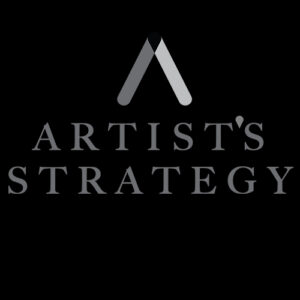
Of the annoying things up-and-coming actors are forced to deal with—getting ghosted by directors and being asked if we’re on Broadway yet—few get under our skin quite like unsolicited career advice. Especially when that advice comes from otherwise well-meaning outsiders and sounds something like this: “It’s all about who you know!”
Yes, cue the eye-rolls and the groans: another cynical take on the state of our industry. But before we dismiss it outright, I think it’s worth digging into why that sentiment can be so triggering. Is it because it undermines our talent? Is it because it makes us feel like a bunch of used car salesmen? It’s frustrating to feel that our talent alone is insufficient, that our skills in and of themselves fall short of guaranteeing our success.
What’s even more frustrating is that it’s true.
Our talent alone is not enough to secure top billing. And why should it be? People are fairly quick to accept professional networking as a fundamental component of any successful business. Recruiters mingle at college job fairs not because they’re having a blast, but to discover great talent. Advertising executives schmooze at happy hours to secure new clients—or to appease existing ones. Even teachers—the noblest of us all!—find themselves justifying their work to crabby and demanding parents at what are surely torturous parent-teacher conferences.
Here’s the thing: We are not characters on The Gilded Age and living this delusion is not doing us any favors. While it’s tempting to think this way—that actors don’t need to dirty their hands doing “networking”—it’s a bad take for two reasons: First, it’s simply untrue. Any actor worth their salt understands that, in addition to maybe being a great interpreter or performer, they are commodities within a well-established industry of serious-minded professionals. The longer it takes us to accept this, the longer we delay the chance at securing a lasting, meaningful, and sustainable career. Second, and maybe even more importantly, human connections are what acting is all about!
Instead of feeling ashamed to be playing the glad-handing game, embrace it as a core component of an actor’s work—as real on-the-ground experience. If your job is to make connections with people from the elevated perch of the stage, you’d better become comfortable making those connections off of it.
I want to be clear about one thing: This is not about being transactional or near-sighted, cozying up to people in power and brushing off those who prove to be useless. That’s certainly a technique some folks advocate for, but it’s one that reeks of desperation and inauthenticity.
In a profession where reputation is currency, you really don’t want to be known as a shameless opportunist.
What I’m advocating for instead is the intentional cultivation of mutually beneficial relationships. It’s about getting to know someone on a genuine level, but also being strategic in determining whether that person can maybe serve as a partner, collaborator, or ally on a future project. It’s also about giving them the opportunity to do the same thing, to form a real relationship with you and hopefully lean on you when they see an opportunity for your input.
Since the Italian renaissance, when commedia dell’arte troupes began entertaining local nobles, actors have been organizing as professionals. By the nineteenth century, guilds and associations had become commonplace, and the status of the actor as a true professional was properly cemented in society.
In short, treating acting as a business has no bearing on how good of an actor you are. Recognizing the commercial foundations of our profession does nothing to stain the craft itself. In fact, it’s a mindset that’s likely to propel your career faster than you’d thought imaginable.
What Do Actors Do in Between Jobs


Artist's Strategy offers artists the opportunity to strategize and create tactical next steps towards a successful, fulfilling career. Based on tested business principles, Artist's Strategy helps you design a tangible path towards a sustainable future. Incorporating and using the basic tenets of a healthy business, we will help you set a one, three or five-year-plan that will work for you and keep you on track to seeing real results. With Artist's Strategy, you will work alongside founder Joshua Morgan to identify the strengths and opportunities of your business and learn more about how to stabilize and grow. How long and how frequently you work with Artist's Strategy depends on your individual needs and resources. Contact us to discuss a plan that could work for you.
Read Full Profile© 2021 TheatreArtLife. All rights reserved.

Thank you so much for reading, but you have now reached your free article limit for this month.
Our contributors are currently writing more articles for you to enjoy.
To keep reading, all you have to do is become a subscriber and then you can read unlimited articles anytime.
Your investment will help us continue to ignite connections across the globe in live entertainment and build this community for industry professionals.